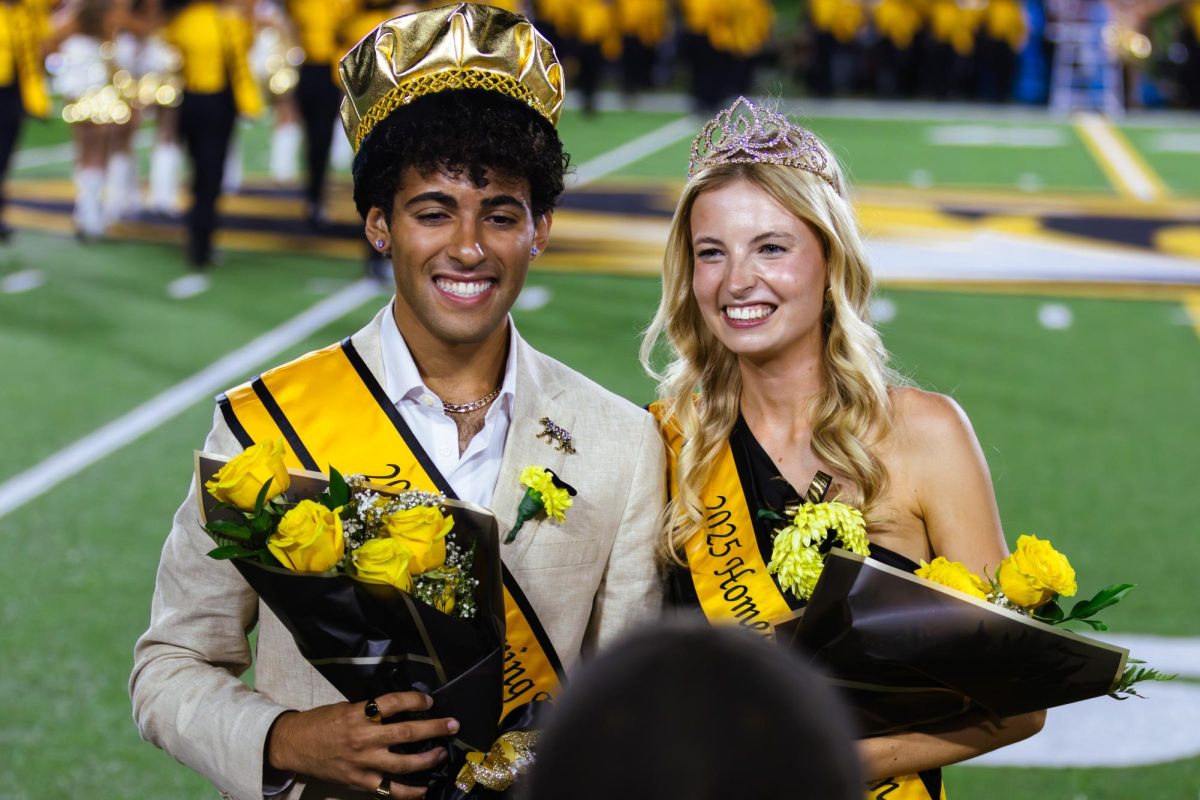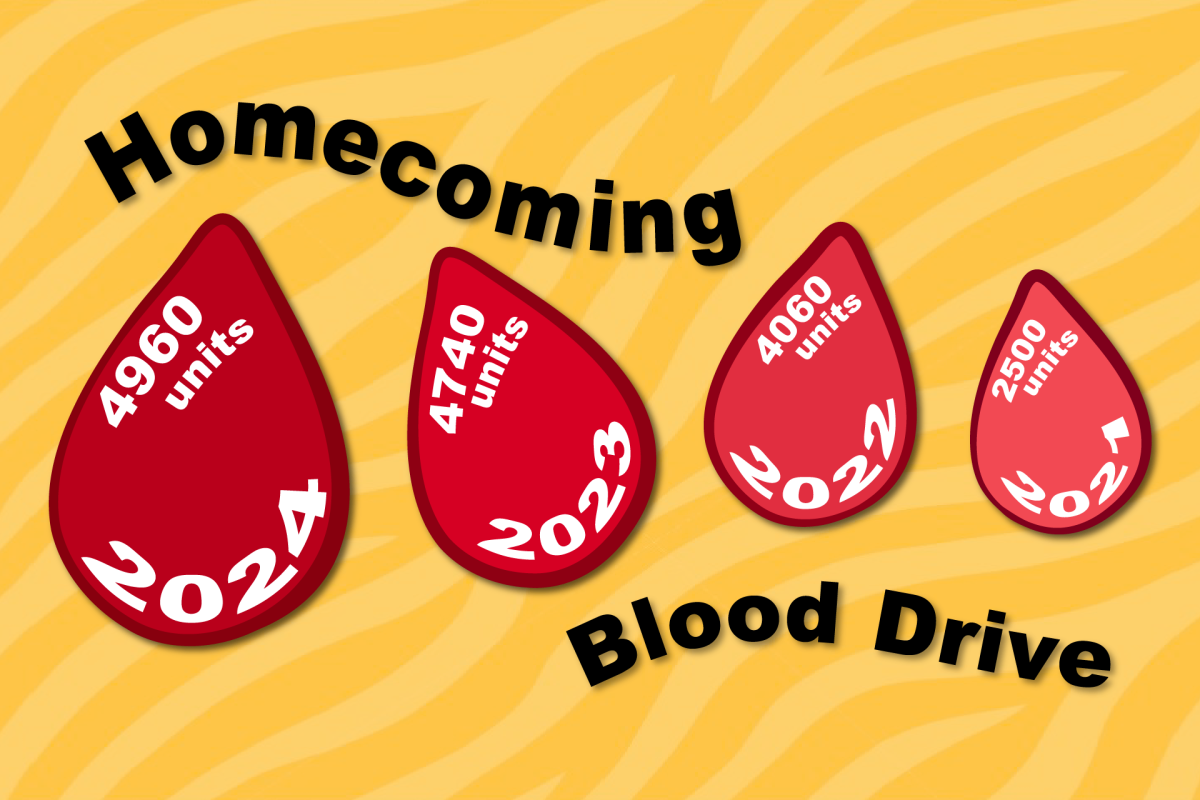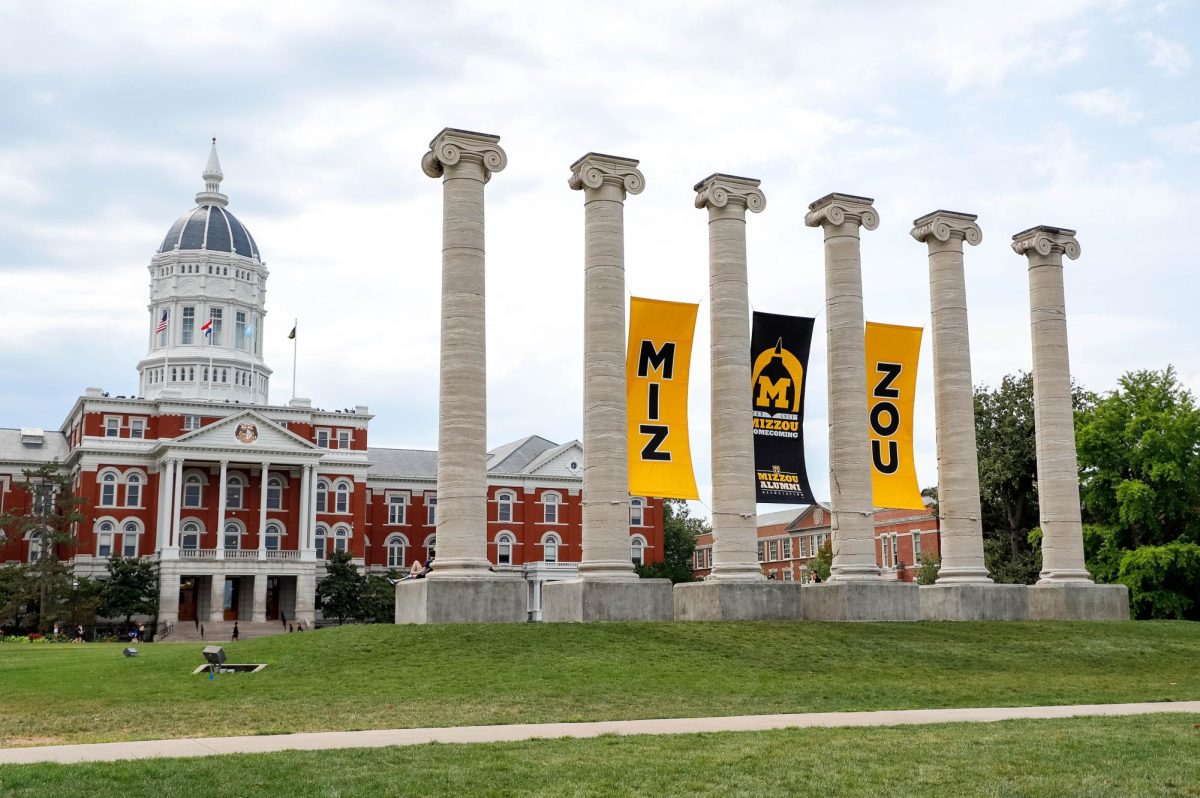More than a month has elapsed since the terrorist attacks occurred in Paris. But the phrases “Charlie Hebdo,” “Je Suis Charlie” and “freedom of expression” are still fresh in the minds of students, faculty and professionals at MU.
“Je Suis Charlie,” a French phrase meaning “I am Charlie,” has been the rallying cry of demonstrators around the world since gunmen reportedly associated with the Yemeni branch of al-Qaeda attacked the building of the French magazine Charlie Hebdo on Jan. 7, killing 12.
Many protests have centered in Paris, but additional events have occurred in other countries as well, with people calling for freedom of expression for the satirical publication in the wake of the attacks.
On Feb. 3, the Missouri School of Journalism hosted a symposium titled “Nous Sommes Tous Charlie Hebdo,” where students, faculty and professionals could discuss the events in Paris and the degree of freedom of expression bestowed to journalists.
Khalil Bendib, a professional political cartoonist from Berkeley, California, and Ethical Journalism Network Director Aiden White both visited MU to participate in the symposium.
They shared their thoughts on how journalism freedom of expression should be exercised.
Bendib respected Charlie Hebdo’s “determined” action of publishing their cartoons; however, he said he was not happy with the outcome of their actions.
“I wish there had been a way to steer them away from what happened, and it just happened,” he said.
As a Muslim-born Algerian, Bendib said he was also regretful of the way Charlie Hebdo pictured Islam.
“I feel sorry,” he said. “They are not funny and they are not really contributing anything important. It seems to be just making fun for purpose of a contempt.”
White gave no justification for the attacks against Charlie Hebdo, but he suggested a trait of being a good journalist, introducing what he called the “red line.” The “red line” is an invisible line journalists should be conscious of not crossing when publishing something provocative.
“If I were an editorial chief of Charlie Hebdo, I would have very different approach to what we would be putting out,” White said. “And the reality of it is that for many people, Charlie Hebdo did go beyond the red line of what good journalism should be about.”
As the protests continue around the world, concerns of possible negative stereotypes representing the whole Muslim population also increase, junior and practicing Muslim Burhan Ali said.
“I do not support those Islamic groups who invoke violent terrorism,” Ali said. “Like, they make (all of Islam) look bad, as they are killing innocent people.”
Ali said Muslims are disciplined not to hurt those who practice other religions, and stressed those who invoke terrorism are not real Muslims.
“They are fake,” he said.
The vice president of the Muslim Student Organization, Imran Rashid, offered a possible reason for, as Ali called it, fake Muslims invoking terrorism against Charlie Hebdo.
“Many foreign lands have experienced consequences of war that have perhaps caused these feelings of anger towards individuals who aren’t directly related to this intervention in foreign lands,” Rashid said. “This repressed anger caused by these interventions sought some sort of outlet, and this appeared in the form of the satirists.”
Rashid said terrorist actions violate Islamic value, which instructs Muslims to “transmit knowledge of the religion, as opposed to enforcing it through the harming of others.”
Abdullah Enani, a Saudi Arabia native who came to MU as an Intensive English Program student, said while Charlie Hebdo and other media outlets should not publish material attacking specific religions, the satirical newspaper’s publishing of cartoons depicting the Prophet Muhammad did not justify the attacks.
“Even though they (published the cartoons), still, we did not have to punish them,” Enani said.
He said Islam does not teach him to hurt people in response to them hurting his religion. He especially stressed “peace,” which he said is embodied by Islam.
“In Islam, we have to respect all other religions,” Enani said. “We have not to curse any.”
Non-Muslim MU students also participated in this controversial discussion.
Junior Javia Gilliam said she was not happy with the controversial cartoons published by Charlie Hebdo.
“(Those who practice Islam) are treated like a second class (by media), I think,” she said.
Gilliam said people should not attack others’ religions.
“That is untouchable,” she said.
Journalism student Hannah Linsky took a different approach when observing Charlie Hebdo’s cartoons.
She did not want to blame Charlie Hebdo’s satirization because “they treated everyone very fairly, fairly in a sense of religion,” she said.
“So, I do not think that attack was deserved at all, obviously,” she said.
Senior Christopher Lenz also agreed with Linsky that Charlie Hebdo should have not been attacked, but he offered a different perspective.
“My understanding is that Charlie Hebdo is not calling anyone to violence,” said Lenz. “They weren’t making any explicit threats against particular groups.”
He used the term “offensive” to suggest Charlie Hebdo was not meant to invoke violence.
“They were just being very offensive, and very offensive isn’t going to fall under any of those exceptions to free speech,” he said.
Journalism faculty member Sandra Davidson suggested being mindful of other audiences in regards to freedom of expression.
“Responsible journalism does entail limits,” Davidson said in an email. “Ethical considerations are imperative. We must, to some degree, be our brothers’ and sisters’ keepers. But responsible journalists should not be timid. Different situations require weighing of different factors, and thoughtful, reflective journalists may come up with conflicting answers after analyzing these factors.”







